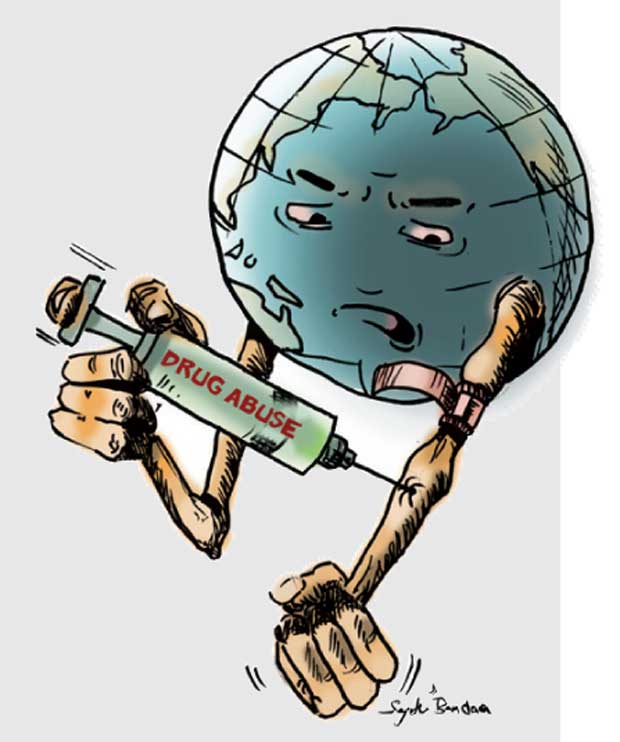27 Jun 2017 - {{hitsCtrl.values.hits}}

 esterday was the International Day Against Drug Abuse and Illicit Trafficking, with the United Nations in a statement saying its intention is to strengthen action and cooperation to achieve the goal of an international society free of drug abuse.
esterday was the International Day Against Drug Abuse and Illicit Trafficking, with the United Nations in a statement saying its intention is to strengthen action and cooperation to achieve the goal of an international society free of drug abuse.
Supported each year by individuals, communities and various organizations all over the world, this global observance aims to raise awareness of the major problem that illicit drugs represent to society. This year’s theme is, “Listen First - Listening to Children and Youth is the first step to help them grow healthy and safe,” the UN says.
According to the world body it is an initiative to increase support for prevention of drug use. It is based on scientific evidence and is thus an effective investment in the well-being of children and youth, their families and their communities.
In April last year, the UN General Assembly held a Special Session on drugs. It was an important milestone in achieving the goals set in the policy document of 2009, “Political Declaration and Plan of Action on International Cooperation towards an Integrated and Balanced Strategy to Counter the World Drug Problem”. The policy defines action to be taken by member states and goals to be achieved by 2019. The outcome document recommends measures to address demand and supply reduction, and to improve access to controlled medicines while preventing diversion. The recommendations also cover the areas of human rights, youth, children, women and communities; emerging challenges, including new psychoactive substances; strengthening international cooperation; and alternative development.
The UN says the text puts new emphasis on proportionate national sentencing policies and practices for drug-related offences and features a strong focus on prevention and treatment.
Secretary General António Guterres in a message says that last year the international community took steps to mobilize a multifaceted, collective response to the full range of issues related to drug abuse and illicit trafficking. Governments came together to chart a new path that was more effective, humane and leaves no one behind.
“Together, we must honour the unanimous commitments made to reduce drug abuse, illicit trafficking and the harm that drugs cause. We need to ensure that our approach promotes equality, human rights, sustainable development and greater peace and security,” he says.
The UN chief adds that he knows from his personal experience how an approach based on prevention and treatment can yield positive results. “As Portugal’s Prime Minister, I used the flexibility afforded by the three international drug control conventions to introduce non-criminal responses to the possession of drugs for personal use. Greater resources were allocated to prevention, treatment, and social reintegration programmes, including harm reduction measures. Portugal now has one of the lowest death rates for drug use in Europe. In 2001, Portugal had the highest rate of HIV among injecting drug users in the region; since the introduction of the new policy, this rate, and rates of all sexually-transmitted diseases, have decreased dramatically. Overall drug use rates have also fallen,” he says.
In Sri Lanka, despite various claims by the National Dangerous Drugs Control Board and other agencies, it is an open secret that the drug mafias are still powerful and that among their main targets are schoolchildren. Latest reports indicate that if not mainstream drugs such as heroin or cannabis schoolchildren are tempted to use various other substances while principals are even afraid to talk about them for fear of reprisal to them and their families. It is known that top officials or detectives of anti-drug agencies, politicians and other officials are in the pay or trapped in the web of the drug mafias.
This year’s theme, ‘Listen First - Listening to Children and Youth is the first step to help them grow healthy and safe’ is vitally important for Sri Lanka. We hope that school authorities, education officials, religious leaders, parents and others will listen to the children and help them to grow healthy and safe.
30 Oct 2024 16 minute ago
30 Oct 2024 39 minute ago
30 Oct 2024 1 hours ago
30 Oct 2024 5 hours ago
29 Oct 2024 29 Oct 2024